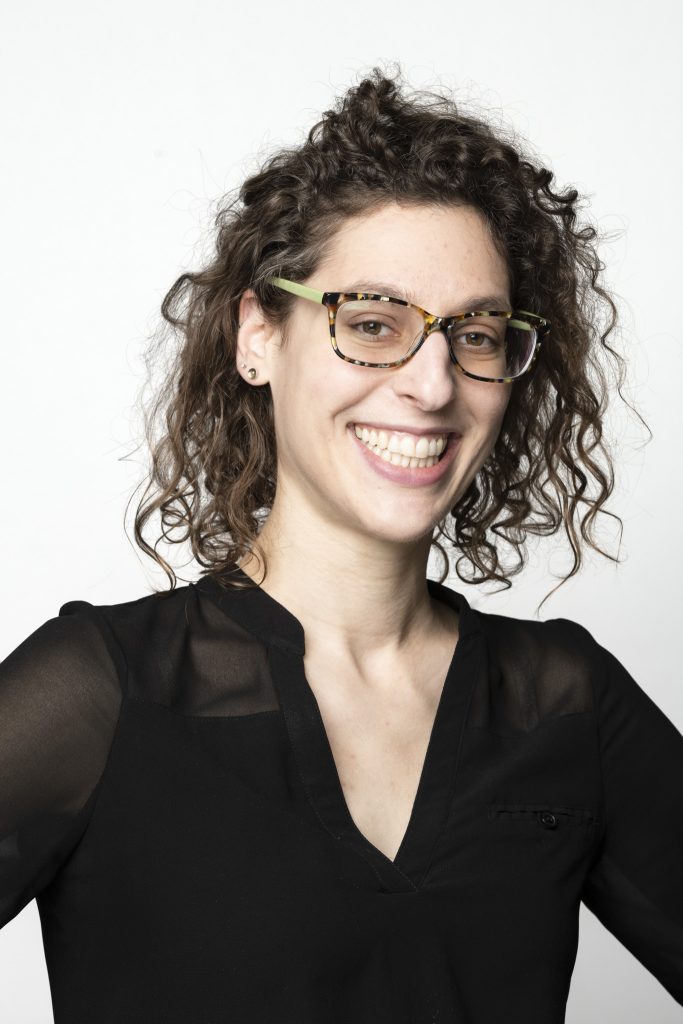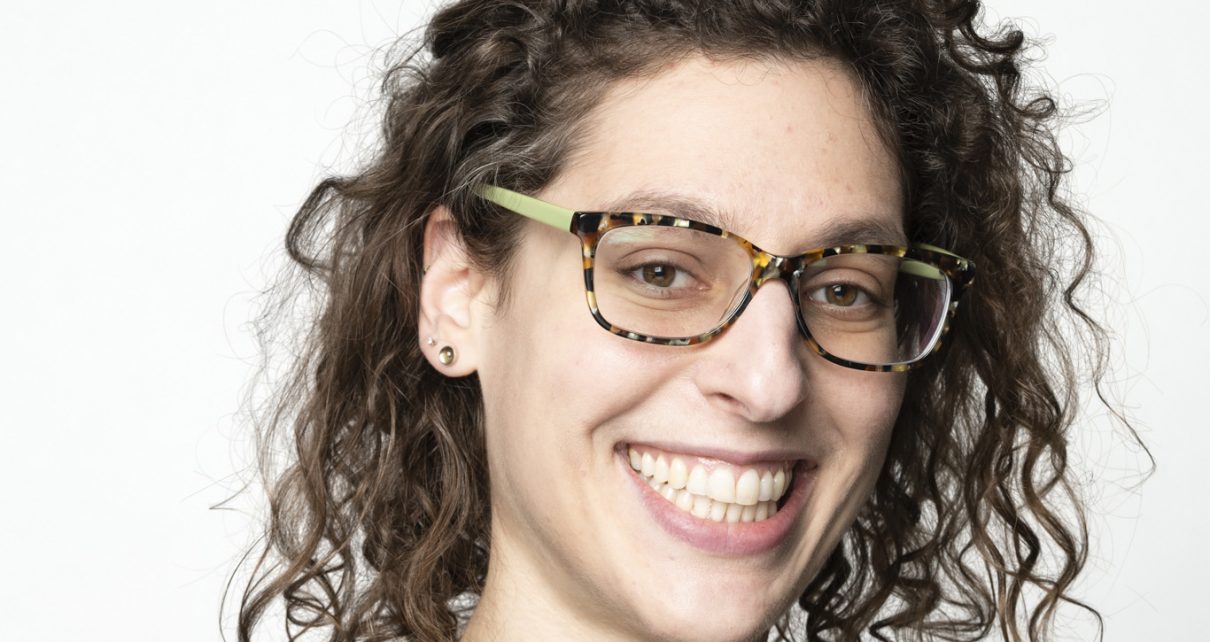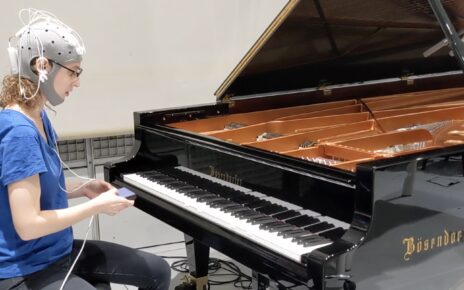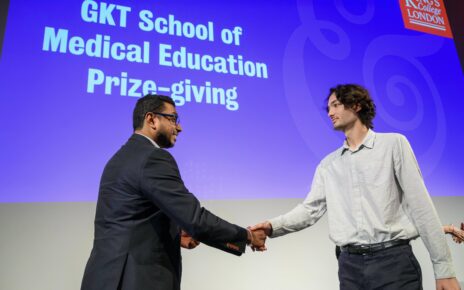 Emily Graber has been awarded a Marie Skłodowska-Curie Fellowship for the project Ear Stretch, focusing on augmenting enjoyment of contemporary music through active tempo control as measured by physiological monitoring. The project achieved a high score of 97.4%, with ratings of 4.8 for excellence, 4.9 for impact, and 5.0 for implementation. We look forward to welcoming Emily to the group and as collaborator to the Cosmos project on 15 August 2021 for her two-year MSCA fellowship.
Emily Graber has been awarded a Marie Skłodowska-Curie Fellowship for the project Ear Stretch, focusing on augmenting enjoyment of contemporary music through active tempo control as measured by physiological monitoring. The project achieved a high score of 97.4%, with ratings of 4.8 for excellence, 4.9 for impact, and 5.0 for implementation. We look forward to welcoming Emily to the group and as collaborator to the Cosmos project on 15 August 2021 for her two-year MSCA fellowship.
Emily is a researcher and musician. After studying violin performance at the University of Michigan, she received her PhD at Stanford University’s Center for Computer Research in Music and Acoustics in 2018. Her doctoral research with Takako Fujioka focused on how performers and listeners anticipate and experience musical tempo changes. Her dissertation, “Neural Correlates of Top-Down Musical Temporal Processing,” examined the process of temporal anticipation with neuroimaging. Following her PhD, Emily was a postdoctoral fellow at the Sunnybrook Research Institute in Toronto, where she examined how interactive musical training assists in rehabilitating speech processing in deaf adults with cochlear implants.
EAR STRETCH: Enhancing aesthetic reception of contemporary music through active tempo control with physiological monitoring
Abstract: Complex contemporary music (CM) is the crucible for musical invention that exemplifies human creativity. It forms the lifeblood of musical cultural evolution, but can be alienating to the uninitiated. In EAR Stretch, we propose to help non-specialized listeners gain a deeper appreciation for CM through embodied interaction with temporal expression of the music. When communicating music, skilled performers often help listeners make sense of the music through expressive prosodic inflections of timing and tempo. In familiar music, listeners can often recognize the pulse and tap a foot along to the expressed beat. But in CM, listeners’ internalization of the beat and subsequent embodied reactions may be limited. The embodied cognition that comes from physically engaging with time—including organization of intrinsic brain activity and changes in perception—may be lacking in CM listening, contributing to poor reception. We hypothesize that empowering listeners to physically control the temporal expression of CM will lead to improved reception of the music as measured by neural and physiological changes and aesthetic evaluation of the music. Our main objective is to determine the impact of motor-based temporal engagement with CM on the listener-performer’s reception of the music. Acoustic- and complexity-matched CM compositions will be created specially for a psychophysiological study comparing normal listening to interactive listening with tapping-based temporal control. Objective measures, neural and physiological responses, will probe the underlying causes of subjective aesthetic evaluations and elucidate the roles of arousal, attention, and entrainment in these sources. Positive impact of interactive, embodied engagement with CM will transform the CM landscape, inspire the redesign of concert experiences, promote social inclusion, and propel CM into the musical vernacular, inciting cultural and intellectual development.




